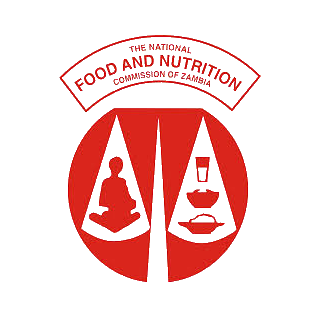NATIONAL FOOD AND NUTRITION COMMISSION
PRESS RELEASE:
NATIONAL FOOD AND NUTRITION COMMISSION CALLS FOR MORE UPTAKE OF LOCAL
NUTRITIOUS FOODS
LUSAKA (Wednesday, 25th November 2020) – The National Food and Nutrition Commission
is calling for more uptake of local nutritious foods in fighting all forms of malnutrition in Zambia
particularly with the onset of the rainy season.
Malnutrition adversely affects health and development. Better nutrition is therefore, related to
improved infant, child, maternal and community health, stronger immune systems, safer
pregnancy and childbirth, lower risk of non-communicable diseases (such as diabetes and
cardiovascular disease), and longevity. It also lessens government’s expenditure on health. In
Zambia only 23% of children receive an adequately diverse diet. Out of this, only 42% are fed
the minimum number of times appropriate for their age. In addition, only 54 % of women in the
reproductive age in Zambia have access to a diet with minimum dietary diversity. Overall the
household dietary diversity in Zambia is low at 5.2 instead of above 8.0.
Consequently, 12% of children are underweight, 4% acutely malnourished, and 9% are born
underweight. These are compounded by high levels of micronutrient deficiencies. The national
stunting prevalence stands at 35%, (1.2 million under-five children).
The rainy season hence offers the country access to a variety of seasonal foods which are
nutritious in addressing all forms of malnutrition which is a health concern. The National Food
and Nutrition Commission therefore recommends the following in increasing uptake of local
nutrient dense foods in the rainy season;
Establishment of vegetable gardens- This lowers the cost of providing families with healthy,
vegetables. There are plenty of vegetables that are eaten in Zambia, based on seasonal
availability. Popular leaf and root vegetables include ‘chibwabwa‘, which are pumpkin leaves,
‘katapa‘ cassava leaves, ‘kalembula’ sweet potato leaves, ‘bondwe‘ (a species of amaranthus),
‘impwa‘ (a species of eggplant), ‘lumanda‘ (a species of hibiscus), orange fleshed sweet
potatoes and others among others.
In order to make maximum use and benefits from these foods, the National Food and Nutrition
Commission recommends that families take the following measures:
1. Food preservation- With seasonal foods in abundance, to avoid wastage proper storage
and preservation is encouraged. Root and leaf vegetables, wild fruits and edible insects like
Inswa, and Fulufute (flying ants) and Ifinkubala (caterpillars) among others should be
preserved for future usage.
2. Eating varied food- Research shows that eating a variety of foods offers better nutrition
required for a healthy body.
National Food and Nutrition Commission Acting Executive Director, Musonda Mofu says, “Good
nutrition is a human right. At national level, nutrition has been prioritized in the 7th National
Development plan of the Republic to Zambia which clearly outlines nutrition as a key contributor
to Human Development in order to have a productive workforce and healthy population.
“In line with the 7th National Development plan, we are implementing the Scaling Up Nutrition
programme in line with the broader government framework of ensuring Universal Coverage of
health and nutrition services. This programme is aimed at addressing stunting and other forms
of malnutrition in Zambia. The programme encourages among others the utilization of locally
available nutritious foods especially with the arrival of the rainy season.
Mr. Mofu has since implored the local population to increase uptake of local nutritious foods in
alleviating all forms of malnutrition in Zambia in order to attain governments’ aspiration of having
a well-nourished population by the year 2030.
-END-
For more information, contact Communication and Advocacy Specialist, Barbara Hamoonga Ndhlovu;
jhamoonga28@gmail.com . Contact: +260 977425015



